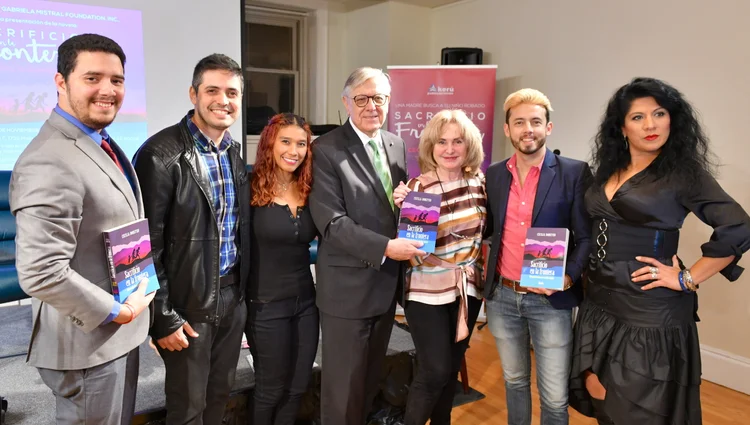Culture Shock
When I came to the U.S. with my husband and two todders it was a shock. Nothing had prepared me for the immigrant experience, nor for the loss of my previous identity.
CULTURE SHOCK
When I came to the U.S. with my husband and two todders it was a shock.
Nothing had prepared me for the immigrant experience, nor for the loss of my previous identity.
In a period of five years, my journalism career in my native Chile had blossomed. Right out of journalism school at the Catholic University in Chile, I had quickly gotten my first writing job, and then moved on to two other magazines. In the months before our departure, I had joined a talented group of female journalists in hosting a television show.
Newly arrived in Washington, D.C., I felt lost. My husband spent long days and every other night at the hospital where he was working on a medical fellowship program. I was alone much of the time with my two little boys. My family, friends and colleagues were back in Santiago… No email or Skype in those days! Expensive phone calls were out of the question.
I was isolated in a foreign culture. Everything felt strange. I had trouble reading people's expressions. My English needed a lot of work. My husband´s scholarship money didn't stretch far enough for two adults and two babies I had no job, and no income. We lived hand to mouth.
I was desperate.
Every night I had the same dream. I had lost my passport, and searched for it frantically, with no success. I would wake up in a sweat.
When I talked to one of the doctors at my husband's place of work, she told me not to worry. I was just going through culture shock.
"It´s very common," she explained. "Most new immigrants get some form of it when they arrive in a new place, and especially if it´s a new culture. You´re lucky," she added. "At least you can speak English. Most immigrants don't have that".
Her explanation didn't help. I loved my cute toddlers. But I wasn't used to spending all day every day caring for them with no help. I was used to child care, and spending a large portion of my day exchanging ideas with my colleagues, researching, writing features and being out in the world.
The cover of Hoy Magazine with my cover story about the trial of three Cubans accused of assassination in Washington, DC.
Then out of the blue, one of my old bosses from Chile gave me a call. It was the editor of Hoy, a magazine like Time magazine in the U.S. I had worked there for a year and had had a great experience. He wanted to know if I could cover a couple of stories from Washington.
The couple of stories turned into permanent work. I became their Washington correspondent. Many of my stories made the cover of the magazine.
At the time, Chile-related events were making big news. Orlando Letelier, a former Chilean Ambassador to the U.S and his aide, Ronny Moffit, had been assassinated blocks from the White House. Four Cubans accused in the murder were going on trial, while an American former CIA agent called Michael Townley had plea bargained with the Federal government. In exchange for his confession, he would get a reduced sentence.
Ambassador Orlando Letelier, assassinated blocks from the White House. I covered the trial of his murderers in Washington, DC.
The trial went on for weeks, and I was there every single day, watching and listening, and then running off to write my copy and send the story to Santiago.
Writing assignments from other magazines followed. In the next couple of years, I wrote for Vanidades, BuenHogar (Spanish Good Housekeeping), Hombre de Mundo, among others. I also wrote for Nuestro, a Latino magazine published out of New York.
I began sending stories to a radio station, and soon became a correspondent for Channel 13, one of Chile's national television networks. I was their correspondent for seven years. I was asked to host a bilingual public affairs show for the Latino community at WETA-TV. I hosted the show for six years.
Then I fell in love with film. I got the film bug. All it took was taking a course in film at my local community college. I decided I wanted to write screenplays. Direct movies. I took the first step. I went for a Master's degree in film at American University in Washington.




